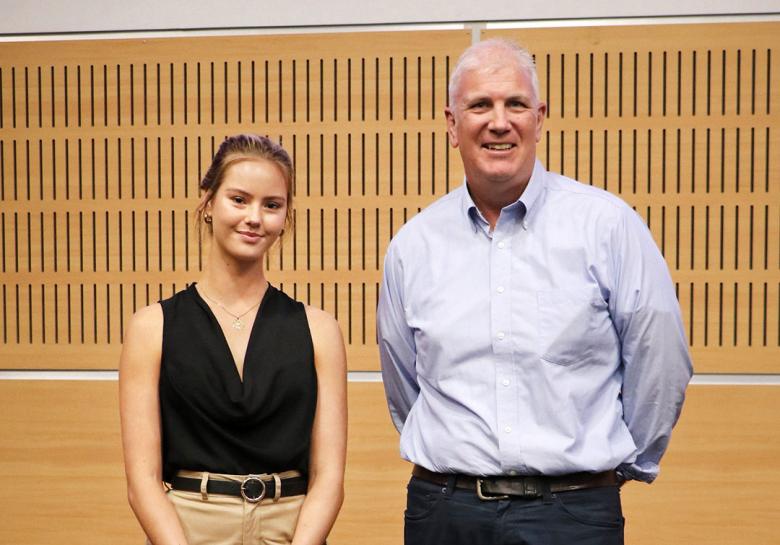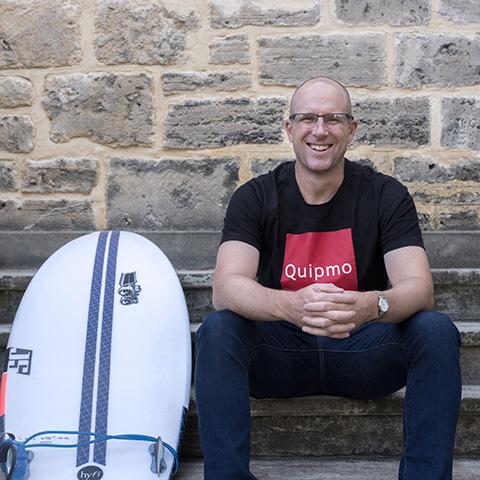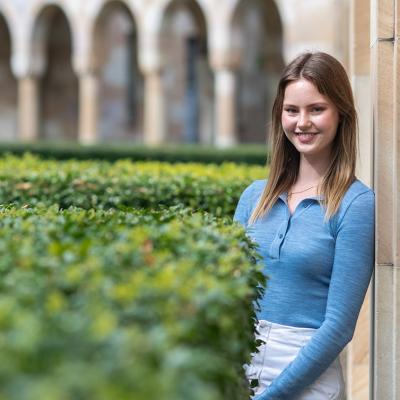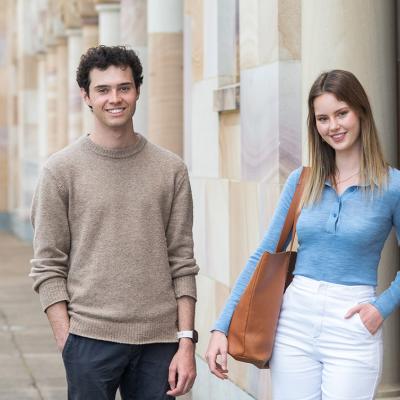Sustainability is not just a concept anymore; it is a necessity. No matter where we live or who we are, we all have a moral responsibility to contribute.
Sustainability and the fast fashion industry

There isn’t a singular approach to how we address sustainability. Large corporations, businesses and individuals all have a part to play. While it may seem like a long shot, your actions do have an impact on the environment and economy.
After recognising areas of improvement in her own life, UQ student Lara Berge committed herself to making a positive impact within the fashion industry.
Lara is studying a Bachelor of Advanced Business (Honours), majoring in entrepreneurship and innovation and human resources.
On top of her studies and social life, Lara also works in the fashion industry. Lara admits she isn’t immune to the lure and ease of fast fashion, especially at a time when her social calendar is full.
“I am part of that market where I didn't want to wear the same thing all the time to different events, but I was also conscious of the impact fast fashion and frequent consumption of clothing is having on our environment.”
What started as a micro-business in high school where Lara would hire out her clothes via social media soon became a scalable business once she started uni. Lara’s participation in Ventures Validate (previously known as Startup Academy) at UQ Ventures allowed her to bring her vision of an everyday sustainable wardrobe to life. Lara pitched Hirely, a subscription-based clothing rental solution that aims to combat the levels of consumption within the fast fashion industry. The service would deliver the customer's chosen clothing options to their doorstep weekly and include the cleaning of items after wear.
How the sharing economy is contributing to sustainability
Lara was inspired by the sharing economy, also known as collaborative consumption, which encourages the circulation of resources we already own via community-based online platforms. This business model has seen a rise in popularity with companies such as Uber, Airbnb and AirTasker, which all utilise this concept to allow the re-use of products and give the everyday consumer more control over the value of their products.

UQ Master of Business Administration alum Chris Evans also used this trend of collaborative consumption and online marketplaces to launch Quipmo, a peer-to-peer marketplace of sporting and leisure equipment. Chris’s business was founded after he saw an opportunity for people wanting to try new activities in their hometown or on holidays who didn’t have the necessary equipment.
Chris and Quipmo’s success expanded across 21 countries and tens of thousands of social media followers. Read more of Chris’s story.
Utilising a similar value proposition, Lara’s aim for Hirely was to create more value out of the fashion industry without disrupting the consumer trend of having a variety of outfits and a new look for each social event.
“It's about knowing your market and knowing your customers really well, and from there you can make strategic decisions to ensure your business aligns with their values.”
Sustainability, environmental impact and improved consumption practices were the original driver of these types of shared services and we can’t deny the positive affect it has had on production and consumption patterns, focusing on access rather than ownership.
How you can contribute to sustainable developments at UQ
The University of Queensland is committed to leading the way for environmentally and socially conscious practices. The Business Sustainability Initiative, one of the five research hubs at UQ Business School, collaborates with industry, government, private sectors and customers to deliver impactful and insightful research into designing strategies for a sustainable future.
The Business Sustainability Initiative focuses on different aspects of sustainability, all with the same mission to accelerate the path to a sustainable future. These findings are embedded into the teaching content and practices not only at the Business School, but at UQ in general. With this focus on sustainable futures and businesses practices within learning material, our students and alumni are also helping to lead the way in creating Australia’s sustainable business future.
Big or small, company or individual, we all have a collaborative part to play in the journey towards a sustainable future for us and future generations. Expectations on corporate responsibility have increased, and good intentions and fancy communications are not enough anymore. More and more consumers are actively choosing companies that provide sustainable solutions and practices within their business, which highlights the need for skilled specialists and professionals who have the knowledge or the drive to steer our business landscape towards a greener output.
The UQ Business School, Bachelor of Business Management and Master of Business will hone your skills and prepare you to succeed as a business leader in any field. You can also choose to specialise in organisational sustainability to help you fast track your career in sustainability with a dedicated focus on this area. Here you will gain a comprehensive knowledge of sustainable business concepts of both commercial business and social enterprises. We can’t wait to see how you shape the future of business.





